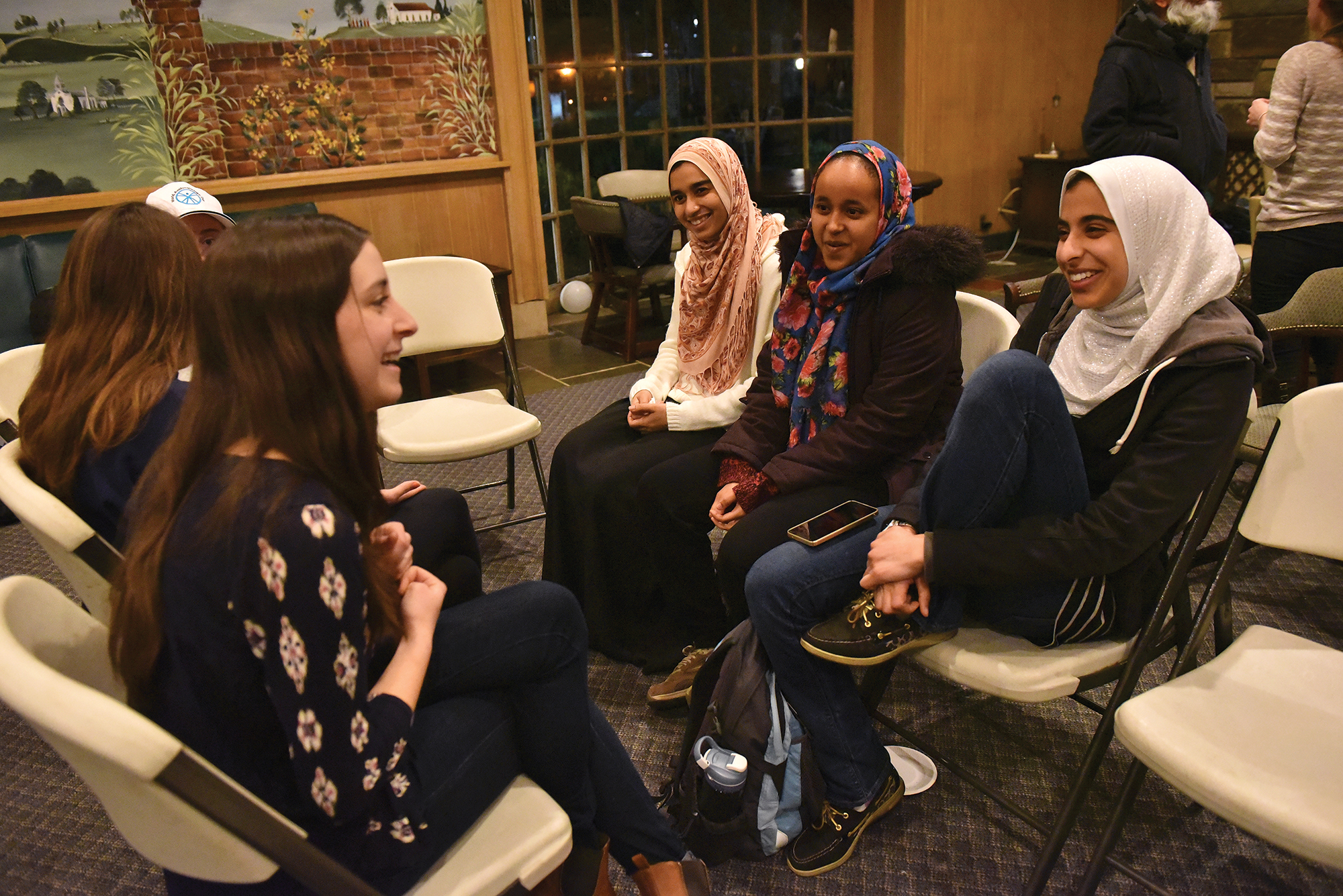Michael Paris’ opening prayer for an interfaith panel Thursday night’s summed up the theme of the event.
“Blessed are you who brought us together this day to work in harmony and peace,” Paris, assistant chaplain for the Catholic Student Center, said to a crowd of about 30 faculty members and students at the center.
The event, “Overcoming Common Misconceptions on Faith,” featured six panelists and drew visitors from Catholic Terps, Hillel and the Muslim Student Association for a conversation about dispelling religious stereotypes.
Aryeh Kalender, a senior Jewish Studies major and panelist, said he hoped audience members realized their beliefs were not always so different from those of peers who practiced another religion.
“I hope everyone was shocked at least once,” Kalender said. “I hope everyone smiled and realized, ‘Hey, that’s super similar,’ at least once.”
The idea for the panel arose during a meeting at the Catholic Student Center last semester when people expressed interest in getting more involved in interfaith events, said Emily Horton, a senior bioengineering and economics major and the center’s interfaith coordinator.
Many of the attendees at Thursday’s event wanted to talk about the misconceptions that remain popular about religion and to get more reliable information.
“It’s like this storm of misinformation and propaganda,” said Tarif Shraim, a university Muslim chaplain and panelist. “Almost everything you hear about Islam is inaccurate nowadays.”

University Muslim chaplain Tarif Shraim, education graduate student Irsa Sarkawi and assistant chaplain Michael Paris speak at the interfaith panel. (Stephanie Natoli/The Diamondback)
Shraim said many self-proclaimed experts on religion make tremendous profit bashing certain faiths. Panelists offered a different approach to learning about religion.
“Your best resource to learn more about Judaism is to ask Jewish people,” said panelist Maiya Chard-Yaron, assistant director of Hillel.
Paris said he had even been misguided about his own religion from movies and pop culture, only to realize much later he had been wrong.
“There’s so many Catholics out there, and it’s often we ourselves who misunderstand it the most,” he said.
Caitlin Banez, a sophomore French and Spanish major and regular at the Catholic Student Center, said she was intrigued by the diversity the event promoted and wanted to learn about religions different from her own.
“I was just so interested seeing that there was … a dialogue about different faiths,” she said. “Growing up in a small Catholic community … I didn’t really get to see the diversity around us and how many more similarities there are than differences among monotheistic religions.”
Shraim stressed that this event was an opportunity for growth and a chance to discuss and move beyond the stereotypes portrayed in the media. The event allowed attendees to view followers of each of the three religions present as humans and not their labels, Shraim said.
“Animosity [and] fear … can drive people further apart, and unfortunately, religion nowadays and people of religion … are facing this kind of difficult reality where they’re being stereotyped day and night,” Shraim said.
In her opening remarks, Horton said the panel has a practical goal — to give students a space to ask questions — and a “big-picture goal” of talking about “what we can be doing as a campus community, as students, as just religious groups on campus, [and] what should we be doing specifically to address these issues in the community.”
The importance of community was also a theme.
“In Judaism, in order to be able to pray in a traditional format, you have to find nine other people to join you,” Kalender said. “It literally requires you to go out and engage with people.”
Islam is no different.
“You cannot be Muslim on your own,” said panelist Irsa Sarkawi, a graduate student studying education. “You can pray, you can go through the motions on your own, but it’s always better with someone else.”



